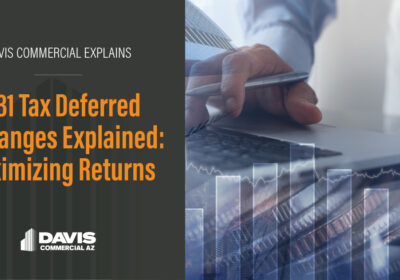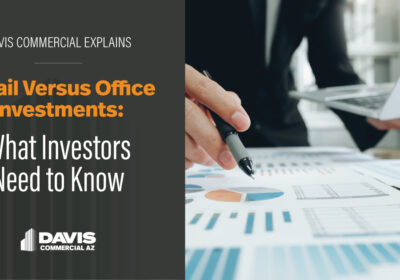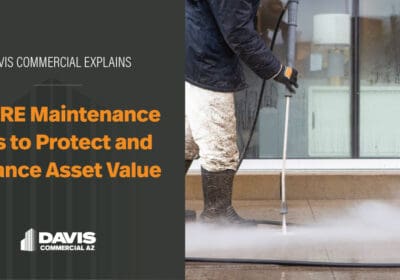Why To Save For A Rainy Day

If there’s anything 2020 has taught us, it’s to expect the unexpected. Who could have predicted the impact the COVID-19 pandemic would have on commercial real estate and specifically the demand for space through quarantines, shutdowns, supply chain disruptions, employment loss, and much more. As a commercial real estate investor, potential economic conditions must be considered before buying single-tenant and multi-tenant properties. A financial savings plan or “rainy-day fund” can provide an extra security blanket that can help you through tough times or support your growth when the time is right. Here are a few reasons why single tenant and multi-tenant investors should save for a rainy day.
Single Tenant Investors
Triple Net Lease single tenant investments (NNN) are relatively stable and have been for a long time. Many NNN properties are leased by high-credit national corporations that offer essential consumer goods and services like those found in pharmacies, gas and convenience stores, they tend to do very well in most economic conditions. However, investors in net lease properties that have significant exposure to retail, restaurant and experiential categories, are presently facing some of the fiercest challenges during the crisis. In the face of the pandemic and government-mandated shutdowns, what does the future hold for this asset class? While no one knows for sure, it’s better to plan ahead for what could be. A rainy-day fund can help you manage an unexpected tenant bankruptcy, vacancy, or even perhaps business shutdown in certain regions.
Multi-Tenant Investors – full service gross or modified gross
While many of the reasons listed in the single tenant investor section also applies to multi-tenant investors, multi-tenant investors have more at stake as they have multiple tenants occupying the property. Multi-tenant properties, like office buildings and retail centers, offer the benefit of multiple tenants paying rent. This alleviates the risk of only one tenant paying rent and possibly vacating the property. In the event that one tenant were to vacate the property, usually the combined total of the other tenants rent could support your income. However, as with most other investments, past performance does not guarantee future results. Unexpected emergencies can happen and multiple tenants could be affected. This is where having a rainy-day fund could make all the difference. If you’re unsure just how much you should be saving, consider a rainy-day fund for six months of vacancy. If it is a multi-tenant net property, calculate for 25-30 percent vacancy in funds set aside. This includes an allowance for Common Area Maintenance (CAM), property taxes, the tenants prorate share of the mortgage and commission fees for a listing broker. You can also start by looking at your monthly cash flow report. Historical spending patterns are a good starting point in considering future spending plans. A good property manager will also help with a savings plan. Remember, it pays to be prepared.
For more helpful information on buying commercial real estate, look for Simply Own It, the American Dream, coming soon.
 About Andrea Davis
About Andrea Davis
Andrea Davis, CCIM, has practiced commercial real estate for over twenty years. Davis’s breadth of knowledge stretches from developers to landlords to buyer/tenant representation and investments. Within the commercial real estate industry, Davis has won numerous awards. The Phoenix Business Journal ranked Andrea Davis CRE in the top 10 of Ranking Arizona for the category of Office Brokerage. Her book, SimpLEASEity™, focuses on leasing and is the first in a series of commercial real estate guidebooks. Her next book, Simply Own It, the American Dream, is forthcoming this year.




